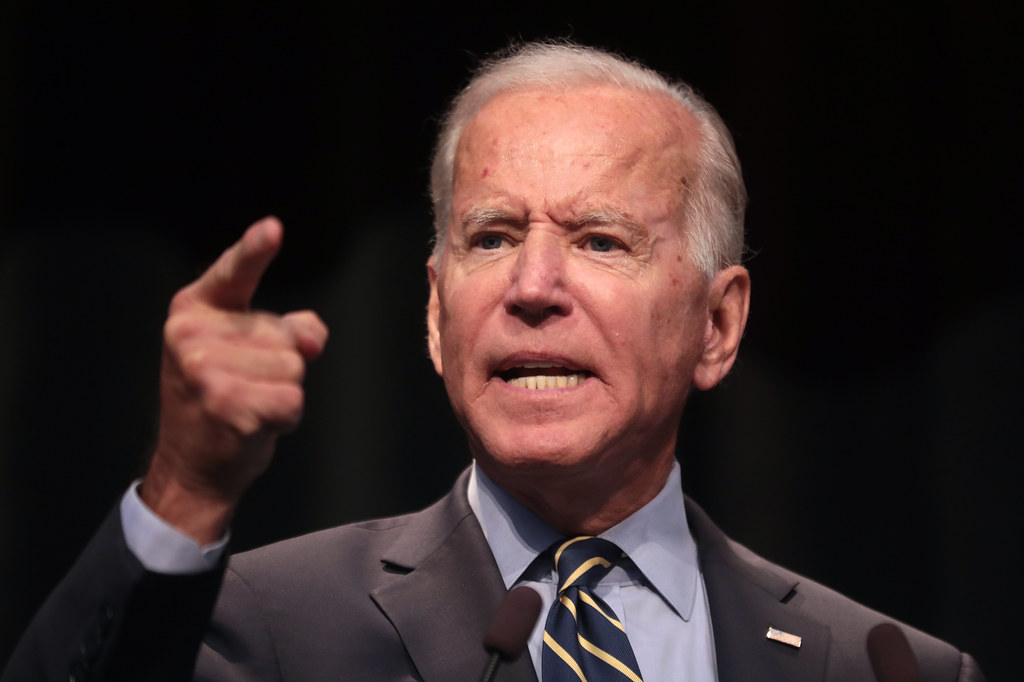Part I -- Joe Biden, the Good Stuff
All right! Let's hear it for Joe Biden! Our new president is leading us in the direction of domestic sanity, and there are even hints of progressive potential in his evolving agenda. Under his leadership, we might soon master the Covid-19 plague and dig ourselves out of our near-depression economic straits. This is terrific!
Some good news when it comes to foreign policy as well. You'll remember that in Trump's determination to "make American great again" (MAGA), the former president decided that international organizations and cooperation were impediments to national greatness. Thus, he systematically withdrew from a number of alignments and also scorned international law. This approach appears to have been part of a MAGA scheme to subvert international order. Its nihilistic undertones were highlighted by the creepy leaders who seemed to warm Trump's heart. He found men such as the Saudi Crown Prince, Mohammed bin Salman, along with a long list of dictators ranging from Rodrigo Duterte in Philippines to Abdel Fattah el-Sisi inEgypt, to be really congenial. There was also Trump's warm admiration for the Russian leader Vladimir Putin.
President Biden has saved us from this sort of delinquency. He is now operating under new and saner marching orders: "diplomacy is back" and multilateralism is in. The U.S. has recommitted to the international effort to slow down global warming and has rejoined the World Health Organization. Biden has ended all participation in the immoral Yemen civil war and, so it is reported, told the Russians to keep their invasive cyber-fingers to themselves.
At this point you might have the urge to celebrate what appears to be a full 180-degree turn from Donald Trump's demented worldview. But hold on, that is not quite the case. Sadly, but perhaps not surprisingly, it appears that a residual lawlessness can be found in at least one the Biden's foreign policies. We can recognize it in the game he is playing with Iran.
Part II -- Scuttling the JCPOA
Recall that in 2015 then-President Obama invested a lot of political capital, not to mention putting forth a remarkable display of good sense, in helping to negotiate a multilateral agreement with Iran. This is known as the Joint Comprehensive Plan of Action (JCPOA), and it was multilateral because it included not just the U.S. and Iran but also the permanent members of the United Nations Security Council: the United States, the United Kingdom, Russia, France, and China as well as Germany (collectively referred to as the P5+1). Basically, the agreement stated that, under a regime of international monitoring, Iran would forgo any development of nuclear weapons and convert its nuclear facilities to peacetime pursuits. In exchange, the P5+1 would lift all nuclear-related economic sanctions, freeing up tens of billions of dollars in oil revenue and the release of frozen assets. It was a rare display of effective diplomacy and it worked -- until Obama's successor, Donald Trump, unilaterally scuttled the deal.
Trump withdrew from the agreement in early May 2018. By January 2020 he had increased the number of Iran-related sanctions to over 1,000. In 2019, Trump was suggesting that if Iran wanted to enter into new negotiations with the U.S., he would consider lifting some of the sanctions. Iran refused to begin the negotiating process over again with Trump. On 15 January 2021, five days before leaving office, Trump added new sanctions. Why did he display such maliciousness? Besides a bizarre hatred for anything Obama had achieved, and the disdain for inteTrnational cooperation which supposedly stood in the way of his MAGA fantasies, there are other factors.
Trump is a truly amoral schemer (we might think of him as a modern-day lawless Borgia). And so he almost naturally fell in with amoral regimes with active domestic lobbies in the U.S. (such as Saudi Arabia and Israel), as well as a "pay to play" approach for the votes and donations of Americans who have a grudge against or fear of Iran. Here we can name not only the Zionists, but also the wealthy Iranians who took refuge in the U.S. after Iran's 1979 revolution. Many of these are Iranian monarchists who want to see regime change in Iran through the return of a shah (king).
Under the circumstances, the Iranian government reaction has been understandable: they see themselves as the aggrieved party. They had negotiated the JCPOA in good faith. They had met the conditions of the agreement to the satisfaction of international monitors. The other side had failed to respond as promised. Not only had the U.S. broken the agreement without cause, but it had then blackmailed its European allies into breaking their commitments under the agreement. This was done by the Trump administration declaring that any party that broke Washington's sanctions against Iran would themselves be sanctioned.
After a year or so, Iran, noting that it was the only party paying attention to the deal and that the sanctions still applied, began to slowly back away from the nuclear agreement's provisions. However, it was not until January 2020 that the Iranians announced they would no longer limit their number of centrifuges and thus their capacity to enrich uranium. Even then it was not the obscene number of American sanctions or the gross failure of the Europeans to abide by their promises that finally "broke the camel's back." It was Trump's ordering of the murder of Iranian General Qassem Soleimani in Baghdad on 3 January 2020 -- essentially an act of war, and certainly one in violation of international law.
Part III -- Joe Biden, the Bad Stuff
Now Trump is gone and we have Joe Biden, who, by the way, has not done the right thing and affirmed that his administration would rejoin the Iran nuclear deal. Instead he declared that "I will offer Tehran a credible path back to diplomacy. If Iran returns to strict compliance with the nuclear deal, the United States would rejoin the agreement as a starting point for follow-on negotiations" (my emphasis). Later he said that the subsequent negotiations would involve the Islamic Republic's "violations of human rights and Iran's role in the regional conflicts." On its face, this is not an invitation to return to a stabilizing status quo ante, or even a supposed "credible path back to diplomacy." It is a take-it-or-leave-it demand. This position is remarkably similar to that of Trump posturing for new negotiations back in 2019. And since, as of 7 February 2021, Biden has refused to lift sanctions on Iran -- has refused to cease driving that country into poverty -- these are no longer Trump's sanctions. Biden now owns this horror show. Here are some of Biden's fatal steps.
It was about nine days into the new administration that Biden's officials began to reference foreign policy and Iran. First appeared Jake Sullivan, Biden's national security adviser, who told the U.S. Institute of Peace that "a critical early priority has to be to deal with what is an escalating nuclear crisis as they [Iran] move closer and closer to having enough fissile material for a weapon." One wonders if Sullivan got his start in advertising, because his description is a purposeful mischaracterization of the situation. The descriptor "escalating nuclear crisis" is a woeful exaggeration. If there is any "crisis" at all, it is because Washington has failed to meet its commitments under the 2015 agreement. The Iranians have repeatedly made it clear that they have no interest in nuclear weapons. And, one can imagine the only thing that could change their mind is an existential outside threat. To date, the only ones that pose such threats are allies of the U.S.: Israel and Saudi Arabia.
(Note: You can view every article as one long page if you sign up as an Advocate Member, or higher).






